Why China will not attend the Swiss peace summit on Ukraine
China has said it will not attend the upcoming Swiss peace summit on Ukraine, believing that the outcome of the meeting will not be able to facilitate peace without the participation of Russia. Lianhe Zaobao correspondent Yu Zeyuan takes a look at the implications of China’s decision and its role in the ongoing war.
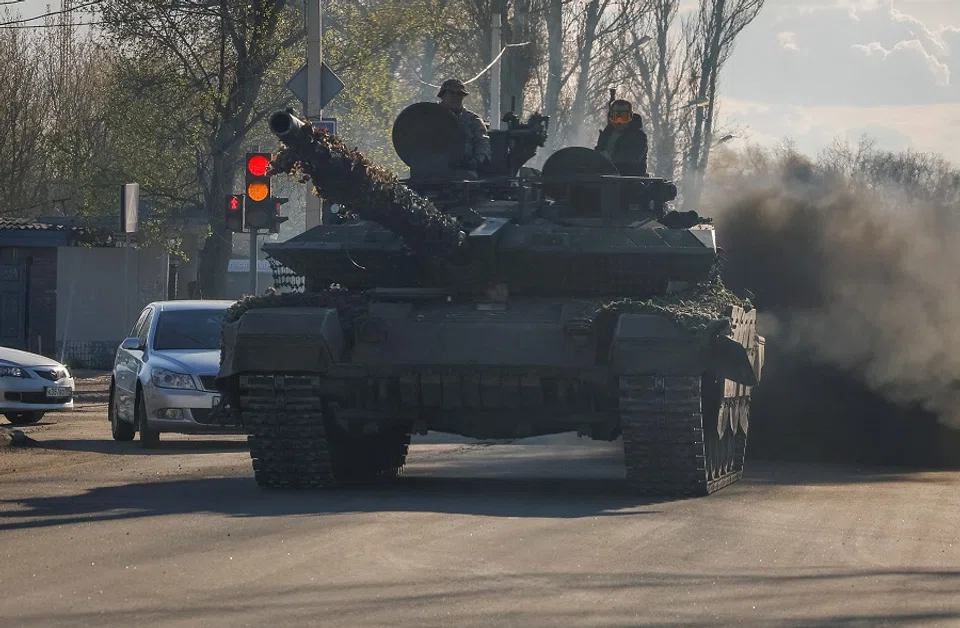
China has confirmed that it will not attend the Ukraine peace summit hosted by Switzerland on 15 June, a decision set to disappoint Ukraine and the West.
China’s firm decision
On 31 May, Chinese foreign ministry spokesperson Mao Ning said the Chinese side has always maintained that to be effective, an international peace conference would need three elements: recognition from both Russia and Ukraine, equal participation of all parties, and fair discussion of all peace plans.
Calling these elements fair, legitimate and not targeting any party, she said they were recorded in the recently released Common Understandings Between China and Brazil on Political Settlement of the Ukraine Crisis, and reflect the universal concern of the international community, especially the vast developing countries.
She added that based on the information China has gathered from various parties and the released arrangements for the summit, it did not seem that the three elements would be met. Due to the “apparent gap between the meeting’s arrangement and what China stands for as well as the universal expectation in the international community”, it would be difficult for China to take part in the meeting. China has also informed relevant parties of its consideration and concerns.
Objectively, the international peace conference cannot facilitate peace without the participation of a warring party. It is more likely that it would turn into a congress of solidarity with Ukraine and condemnation of Russia.
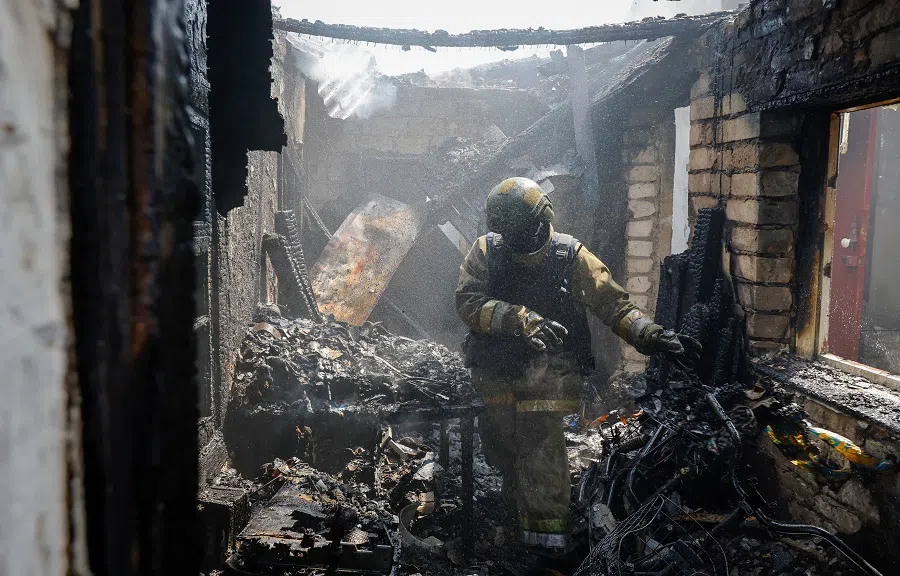
So far, over 70 countries have announced their participation in the Swiss-hosted Ukraine peace summit. Prior to this, Switzerland and Ukraine had hoped that China would attend the meeting. Some analysts suggest that, with broad participation expected at the peace summit, China may choose to send representatives to prevent international isolation. However, it is likely to abstain from sending a high-level delegation to avoid antagonising Russia.
But China’s response is clear — it will not attend the meeting. In fact, the consensus jointly released by China and Brazil on the political settlement of the Ukraine crisis on 23 May in Beijing had already alluded to China’s non-participation in the Ukraine peace summit.
The consensus states that both countries support an international peace conference held at a proper time that is recognised by both Russia and Ukraine, with equal participation of all parties as well as fair discussion of all peace plans — the three elements mentioned by Mao.
Since Russia was not invited to the Ukraine peace talks, it is clearly inconsistent with the three elements proposed by China and Brazil. This gives China reason not to attend the Swiss-hosted peace summit. Objectively, the international peace conference cannot facilitate peace without the participation of a warring party. It is more likely that it would turn into a congress of solidarity with Ukraine and condemnation of Russia.
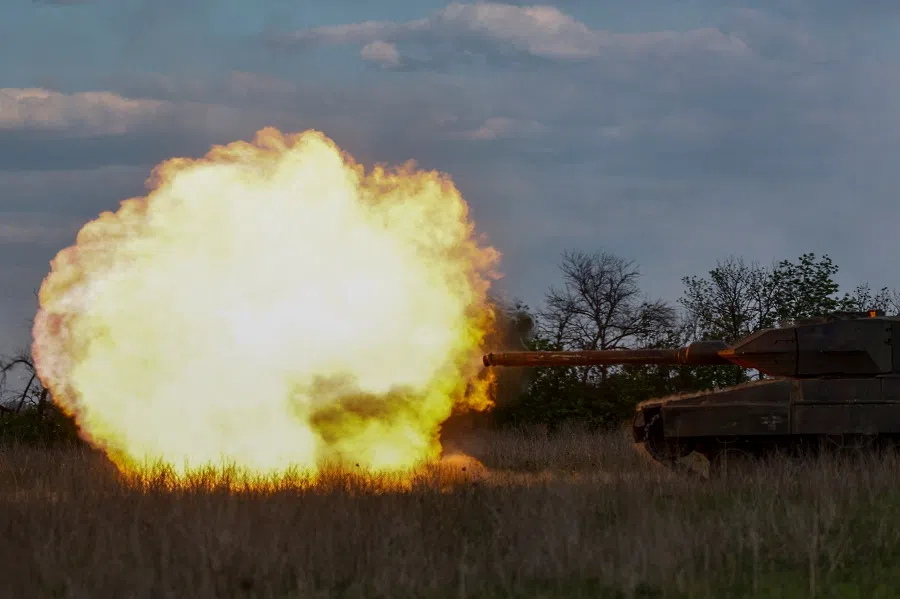
The China-Brazil consensus also opposes the use of weapons of mass destruction, particularly nuclear weapons and chemical and biological weapons, and asserts that all possible efforts must be made to prevent nuclear proliferation and a nuclear crisis. This stance is likely to find favour with Western countries that are concerned about Russia’s possible use of weapons of mass destruction including tactical nuclear weapons.
By not attending the Swiss-hosted international peace summit, China could face greater pressure from the US and its allies.
Strategic and economic benefits of China-Russia relations
As for the Russia-Ukraine war, China has always claimed neutrality and is a proponent of peace. But to the West, China is not only biased towards Russia but also offers substantial support to enable Russia to sustain the conflict. By not attending the Swiss-hosted international peace summit, China could face greater pressure from the US and its allies.
Around the time when China confirmed that it would not join the Ukraine peace summit, US Secretary of State Antony Blinken stated that over 100 Chinese entities had already faced sanctions for circumventing US sanctions on Russia’s defence industry and supporting its military capabilities. He further asserted that the US is fully prepared to take additional measures if necessary.
US Deputy Treasury Secretary Wally Adeyemo recently stated in his visit to Europe that China’s sale of dual-use goods to Russia poses a significant threat to Europe’s national security. He added that China can either do business in Western economies or equip Russia’s war machinery with dual-use goods, but it cannot continue to do both. Adeyemo also said that the US is prepared to use sanctions and export controls to hold China accountable.
However, US sanctions would not change China’s decision, nor would it likely alter the close political and economic relations between China and Russia. When Russian President Vladimir Putin visited China in May, Russia and China reached agreements on a series of important collaborations, including expanding on Russia’s energy exports to China, co-development of the Bolshoy Ussuriysky Island or Heixiazi Island, consulting with North Korea to allow Chinese vessels to enter the Sea of Japan via the Tumen River, as well as opening up the Northern Sea Route — all of which are conditions highly favourable to China.
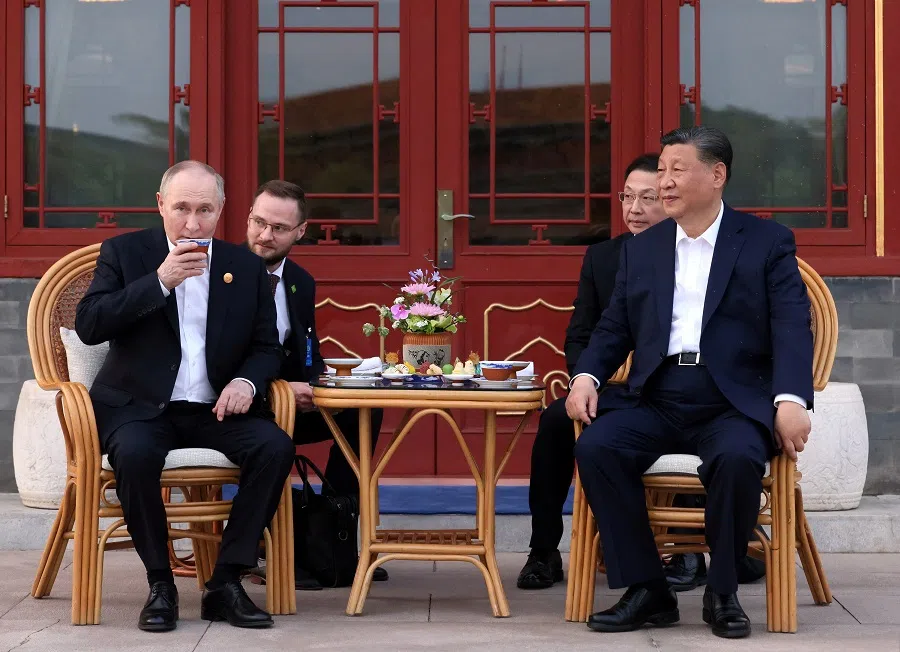
That is to say, against the backdrop of a relentless crackdown from the US and its allies on China and Russia, the strategic and economic symbiosis between the two nations, wherein each derives significant support from the other, is unlikely to fundamentally shift due to the Russia-Ukraine conflict.
China would never choose to support a peace plan that is detrimental to Russia just because of pressure from the West; not only would this offend Russia, there is also no guarantee that this would lead to leniency from the US and its allies.
Pressure on China
If Russia loses support from China, it would significantly worsen its domestic economic situation. This would not only make it harder to continue fighting the war but could also lead to severe economic and political turmoil.
Similarly, if China were to lose Russia as its strategic barrier against NATO, and reliable, cost-effective sources of energy, minerals, and other resources, it would not only face increased strategic isolation but also suffer significant economic impact.
China would never choose to support a peace plan that is detrimental to Russia just because of pressure from the West; not only would this offend Russia, there is also no guarantee that this would lead to leniency from the US and its allies.
However, China is also working to mitigate the potential pressure arising from its absence at the peace summit. Currently, besides the US which has repeatedly expressed its intentions to sanction Chinese businesses that support Russia’s defence industry, few of the US’s European and Asian allies have openly signalled their intention to follow suit.
Chinese President Xi Jinping visited France among other European countries in May, and China, Japan and South Korea held a trilateral leaders summit in Seoul in late May, while the defence chiefs of China and the US met on the sidelines of the Shangri-La Dialogue in Singapore — all signs that China has much room to manoeuvre in handling issues such as its relations with Europe, Japan, South Korea and the US.
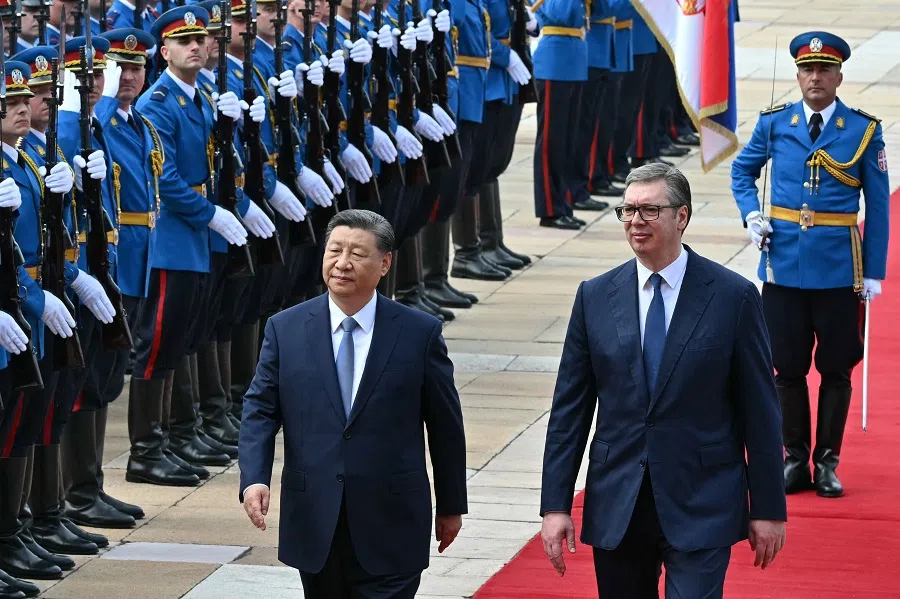
As for the Russia-Ukraine war, China has its own mediation plan. Its main focus is on urging the conflicting parties to swiftly restart dialogue and communication, working together to de-escalate the situation.
The joint document on the political settlement of the Ukrainian crisis, released by China and Brazil, is proof that China’s position is supported by some developing countries. Perhaps once the two sides reach a point where they can no longer continue fighting, China could play host to an international peace conference for Russia and Ukraine to participate in.
This article was first published in Lianhe Zaobao as “中国为何不参加乌克兰和平会议?”.





